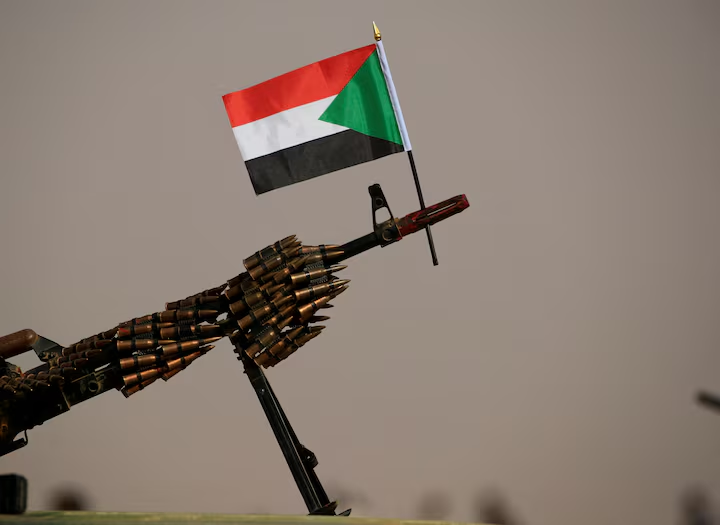* Ethiopia says will not halt construction of new dam
* Egypt fears reduced water supply for its large population
* Addis Ababa plays down talk of “war” over Nile waters
* Mursi aide sees “high probability” of peaceful resolution (Adds Egyptian comments)
By Aaron Maasho
Somalilandsun Ethiopia’s parliament unanimously ratified a treaty on Thursday that strips Egypt of its right to the lion’s share of the Nile river waters, raising the political temperature in a dispute between Cairo and Addis Ababa over the construction of a dam.
Egypt, whose President Mohamed Mursi warned this week of the potential for conflict over the issue, said Ethiopia’s move changed nothing and repeated its rejection of the treaty terms.
The Ethiopian parliament’s move follows days of irate exchanges between two of Africa’s most populous nations over Ethiopia’s new hydroelectric plant, which Egypt fears will reduce a water supply vital for its 84 million people.
Mursi said on Monday he did not want “war” but would keep “all options open”, prompting Ethiopia to say it was ready to defend its $4.7 billion Great Renaissance Dam near the border with Sudan. An aide to Mursi said on Thursday that there was a “high probability” of an eventual peaceful resolution.
Ethiopia and five other Nile basin countries – Burundi, Kenya, Rwanda, Tanzania and Uganda – have now signed a deal effectively stripping Cairo of its veto, based on colonial-era treaties, over dam projects on the Nile, source of nearly all of Egypt’s water.
Ethiopia’s late leader Meles Zenawi had delayed parliamentary ratification until Egypt elected a new government.
“Most of the upstream countries have approved it through their parliaments. We delayed it as a gesture of goodwill to the people of Egypt until a formal elected government was in place,” Ethiopian government spokesman Bereket Simon told Reuters.
“We have a principled stance on the construction of dams. We are determined to see our projects brought to completion.”
Another government spokesman, Shimeles Kemal, said Ethiopia’s 547-seat legislature had voted to “incorporate the treaty into domestic law”.
Cairo said the move was not significant. “Ethiopia’s ratification of the agreement does not change Egypt’s official position of refusal of that agreement, as long as no understanding is reached on all the clauses that Egypt objected to,” government spokesman Alaa el-Hadidi said in a statement.
DIPLOMACY
Commending Ethiopia for its hydroelectric plans, Uganda’s President Yoweri Museveni said: “This is what the whole of Africa needs to do.”
Egyptian Foreign Minister Mohamed Kamel Amr is expected to travel to Addis Ababa on Sunday for talks about the dam, though Ethiopia’s foreign ministry has said there can be no question of suspending construction.
An Ethiopian foreign ministry spokesman has said the talks with Egypt are “in the spirit of Ethiopian interests”.
The African Union has urged both sides to hold talks to resolve the row.
Under a 1929 pact, Egypt is entitled to 55.5 billion cubic metres a year of the Nile’s flow of around 84 billion cubic metres.
But, along with other upstream neighbours such as Kenya and Uganda, Ethiopia argues that this pact is outdated. Ethiopia has dismissed talk of military action as “psychological warfare”.
Officials in Addis Ababa say a technical analysis compiled by experts from Ethiopia, Sudan and Egypt provides assurances to downstream nations that the dam being built by an Italian firm will not have a negative impact on the river’s water levels.
President Mursi’s foreign affairs adviser told reporters on Thursday that Cairo was dissatisfied with the technical report and wanted further study before work went ahead.
Khaled al-Qazzaz said a compromise was possible to let states generate power without reducing water downstream: “If things are done right, damage can be very modest … But we have to come to an agreement before proceeding with the work.”
He made clear military action was an option, but a remote one, saying: “It is premature to speculate on conflict.” (Additional reporting by Asma Alsharif and Alastair Macdonald in Cairo; Editing by Michael Roddy)
Source Reuters






















![Somalia: How I silenced the ghosts of war” Ex KDF Sniper KDF spokesman Joseph Owuoth during a press conference at Defence Forces Headquarters in Nairobi. [Boniface Okendo,Standard]](https://i0.wp.com/somalilandsun.com/wp-content/uploads/2025/01/3weEEfVsWimjDyp6nescuDdu3NvvhMEIbD5Dcc9l1.png?resize=100%2C70&ssl=1)











